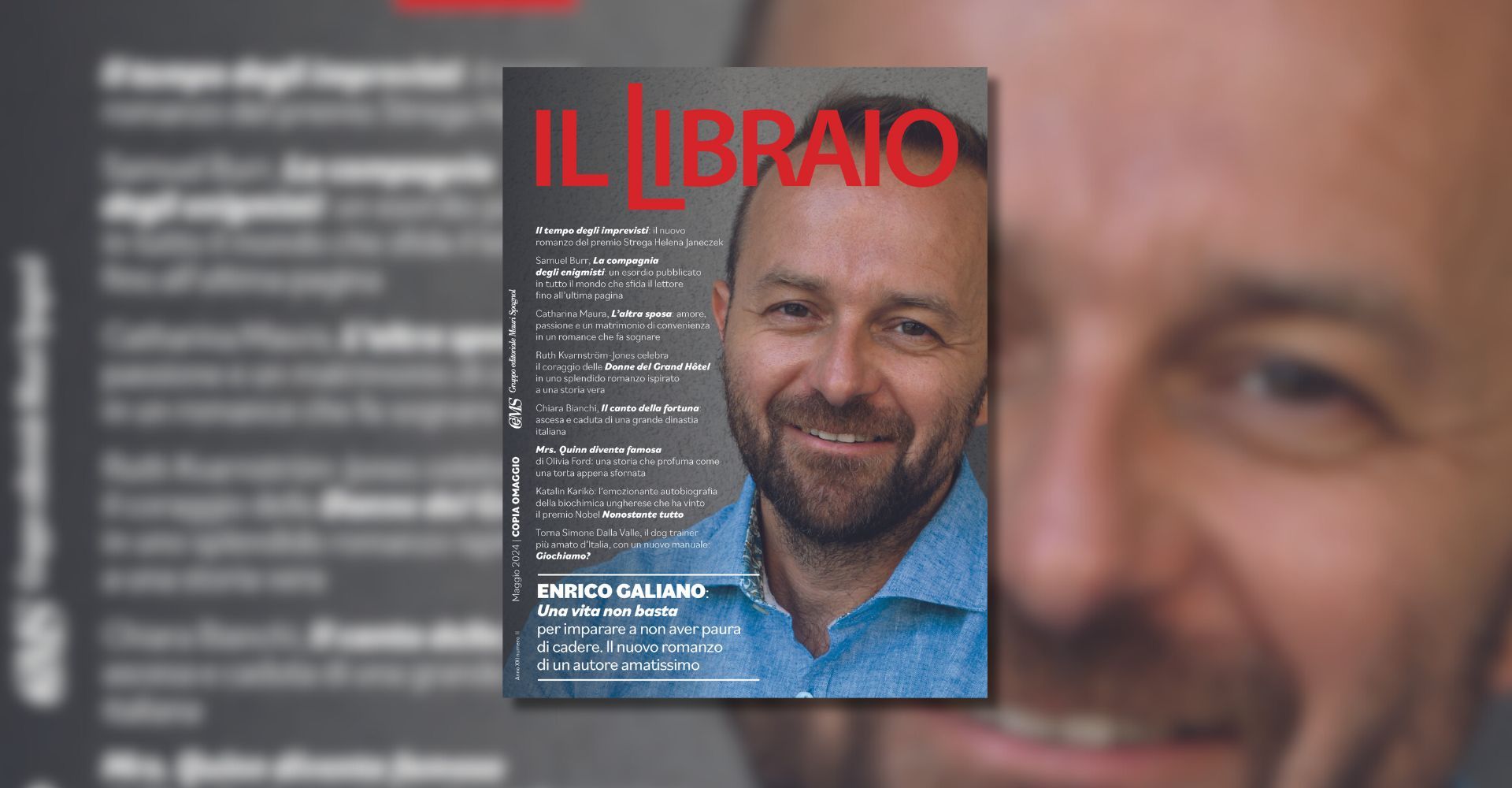The long-awaited return to bookstores of one of the most beloved characters of Yet we fall happythe first novel by Enrico Galiano: The Professor Bove.
In fact, it arrives in the bookstore for Garzanti One life is not enough. At the center of the plot is Teo, who not only failed in his second year of high school but, above all, actually did something wrong. He knows it’s so, he knows it’s right that he was punished with several hours of socially useful work.
Yet he also knows that when he feels that strange strength, that instinct that he can’t keep at bay, he can’t help but follow them. AND most of the time they lead him to do things he regrets. She never talked about it with anyone. Not even with his best friend Peachthe only one who understands him, much less with his parents who seem light years away from him.
Everything changes, however, when he meets on a park bench an elderly gentleman who says he is a former professor and his name is Bove…
It may also interest you


The writer Enrico Galiano on the cover of the new issue of our magazine (here you can download the May 2024 issue of the Bookseller for free)
The man, day after day, takes him to the most disparate places and talks about Greek myths and philosophers in a way that Teo has never heard. Those words, however, encourage him to dare, to ask himself the right questions, not to give up, to understand. So Teo is ready to talk to him about that “thing” he feels inside that he can’t give a name towhich seems to guide his actions and thoughts.
That “thing” that makes him feel different and imperfect. Bove makes him understand that he is not alone, that everyone is looking for something. Everyone is looking for the reason to live, of the only gift that makes us special. To understand what it is, sometimes a lifetime isn’t enough. But we must not stop trying, trying, even failing. To find yourself you have to get lost, find yourself and get lost again…
It may also interest you

Enrico Galiano, a Friulian teacher and writer born in ’77, in the classroom as well as on social media, where he has a large following, knows how to talk to kids. After the success of novels (all published by Garzanti) such as the aforementioned Yet we fall happy, All the life you want, Happy against the worldAnd Stronger than any goodbyehas published a very particular book, It only takes a moment to go back to being a child, illustrated by Sara Di Francescantonio. He then returned to the novel with Sleep tonight on my heartand his first essay was also published by Garzanti, The art of making big mistakes. With Salani Galiano then published his first story for children, The secret society of word savers. And then his second essay came out, again for Garzanti, School of happiness for eternal repeaters. His latest novel is instead Geography of perfect pain (Garzanti).
Here you can read all articles written by Galiano for our site, with whom he has collaborated consistently for several years.
It may also interest you

Courtesy of the publisher, above ilLibraio.it we publish an excerpt from the book:
Nobody knows what Teo does on certain evenings, when he is quite far from everyone’s eyes. And no one has to know.
Why does this happen? He doesn’t know: he only knows that it’s her, there What.
He calls her that because he doesn’t know what to call her.
It’s there, that’s all.
How do you explain stuff like that? You can’t, and in fact this is the only way Teo can. Because even he struggles to understand what happens to him, sometimes.
It’s like a presence. A force. An instinct. And there’s no way to keep it at bay when it shows up.
There What.
Silent animal, lives and breathes inside him. For a couple of seconds, for five minutes, sometimes even for a whole hour, she decides what to say, what to think, what to do. And she does. She is there, hidden in the dark, but from that darkness she pushes buttons, she suggests ideas, it is a hand that she pushes.
He hears her footsteps every now and then, sometimes he almost smells them, but Teo has never seen her. She moves in the shadow, and from that shadow he moves.
He calls it la What because it’s a bit like saying It, in English, a neuter indicating that which is not well defined. And then It is the character of her favorite novel, even if the What He doesn’t look like a sharp-toothed clown hiding in a sidewalk drain. It doesn’t look like anything because it has no shape at all, it doesn’t have contours: or, if it does, Teo has never seen them. It’s a footprint in the sand, a background noise. You know it’s there, but you don’t know where.
It’s not really like having an imaginary friend: it’s more
like a guest who lives inside him, an illegal tenant in his house. Sometimes it’s a voice, sometimes a feeling, sometimes none of that. Simply, it is someone who takes over the control tower from him. And for a while he has also been making him do things that Teo doesn’t have the courage to confess even to Peach.
One day he will get over it and above all he will understand what this was What that stirred inside him: and then perhaps he will be able to tell someone what he did when he was sixteen and above all why. Now, even he doesn’t know why.
But when did it first appear?
Teo has a very precise memory. It happened one day, when I was thirteen.
Returning from school on foot alone, towards the house of his aunt Guglielmina – aunt Gu for him -, Teo had turned down a stone side street that led to an old abandoned house. Why hadn’t he gone straight to his aunt, who was waiting for him like every day with a steaming plate of pasta? She didn’t know it: she had heard some kind of call, and she had followed it.
And then?
Then he did it. She really had.
He knew it was wrong, yet he didn’t stop. When he had realized what had just happened, it was like having stumbled there and found the trouble made by someone else: only that other person was always him, it was always Teo. He had run away, with all the strength he had in his body. He arrived at Aunt Gu’s place out of breath so much that it made her worry. But he was almost more scared: scared and excited at the same time. He felt both guilty and happy about what had just happened.
But why?
Why had he done something so stupid, so wrong? What was the point of her?
And above all: why couldn’t he just feel bad, but also feel that pleasant thrill shaking his insides?
He had no idea.
Curiosity, perhaps, desire to break the rules, of course: but also something else, deeper, that not even he could have said.
Now he knows. Now she has learned to give it a name.
It had been her: it had been there What. For the first time she had perceived her as a presence, inside him and at the same time detached from him. It has always been like this since then.
And now?
Now Teo has an untouched sheet of paper before him and just over an hour to write a letter to a friend who wants to leave school. He would be tempted to hand it in blank, but in the end the What takes over, and Teo has the pen in his hand.
And he writes
© 2024, Garzanti Srl, Milan
Mauri Spagnol publishing group
(continue in library…)










